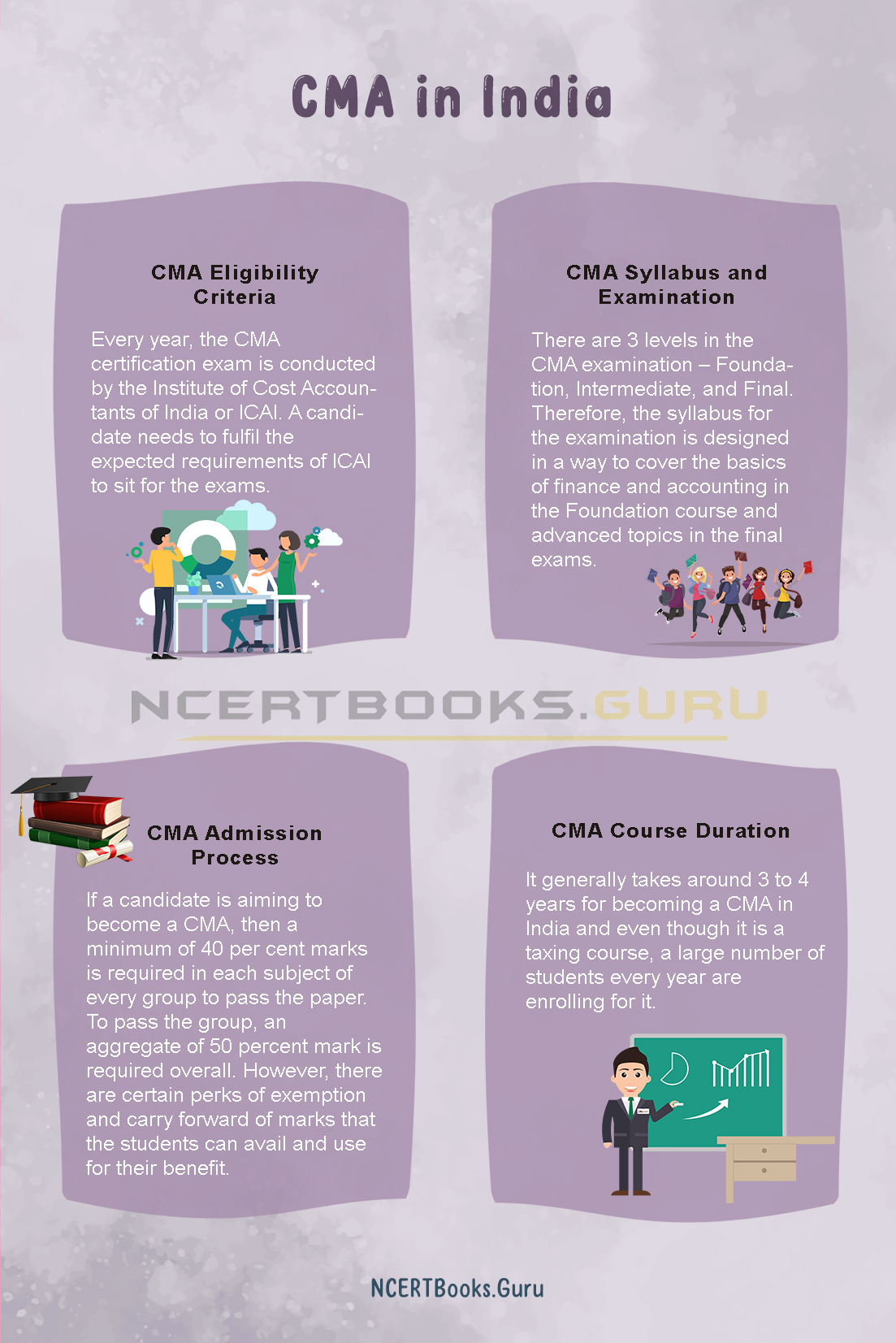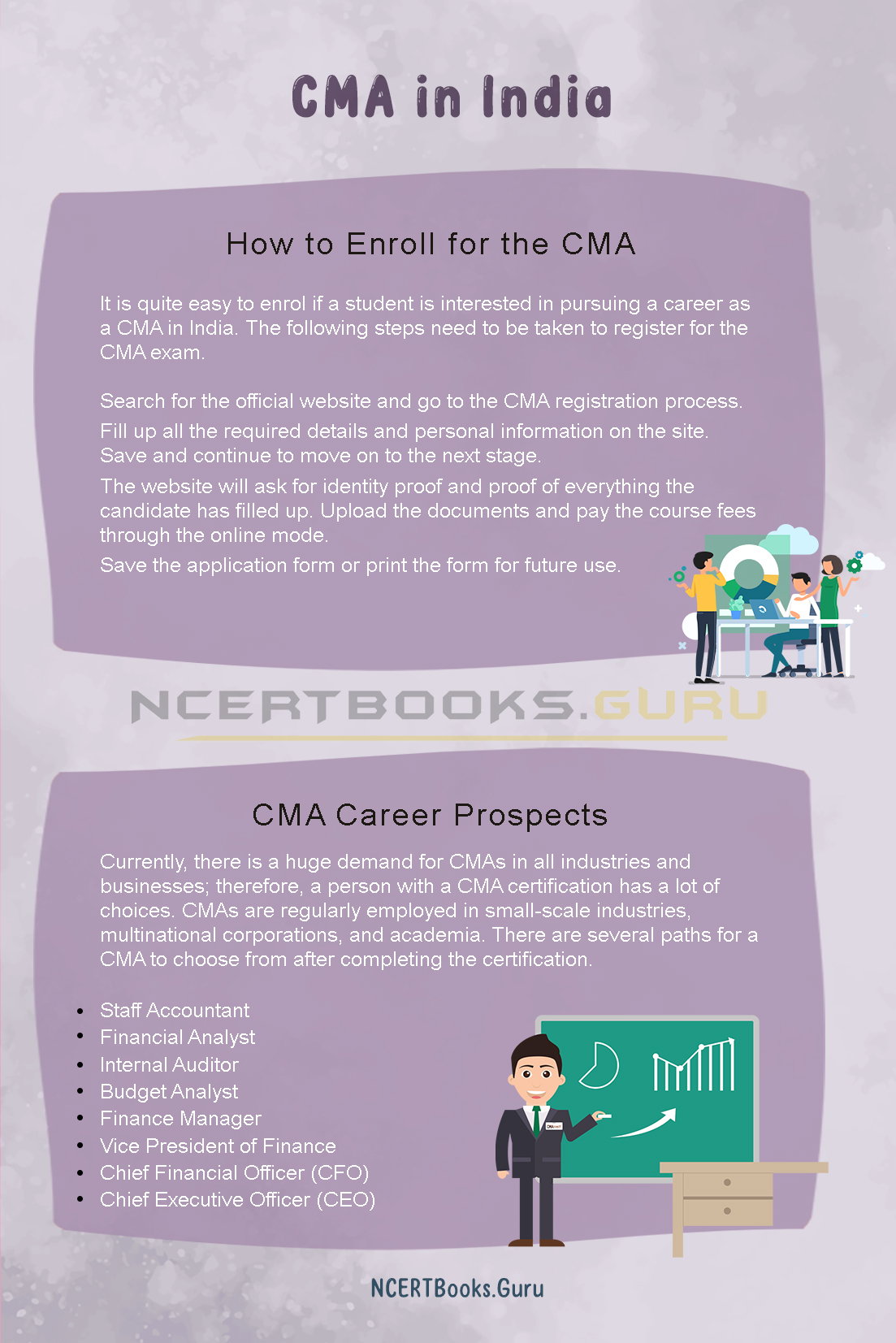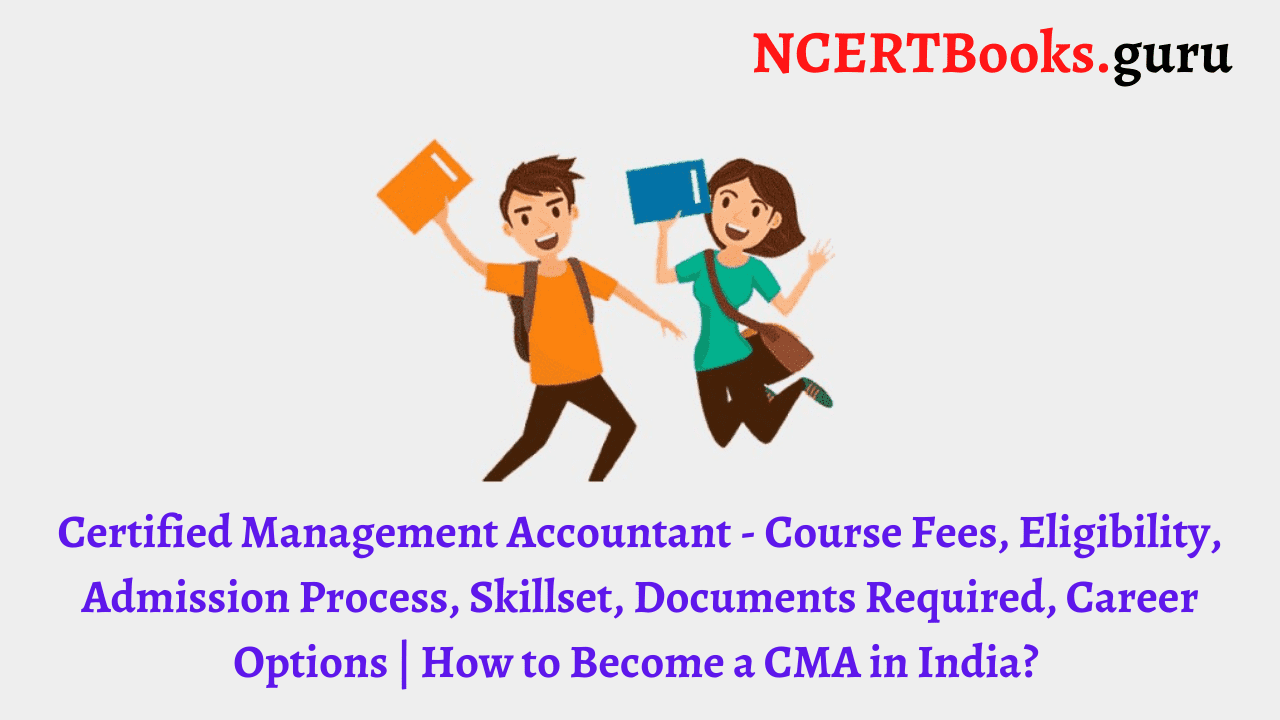The CMA course is tailor-made for anyone wishing to enhance their career prospects in the field of finance and it is designed in a way that is suitable for finance professionals at all levels. The only question that remains is how to become a certified management accountant in India? This article on Certified Management Accountant Course will shed some light on Eligibility Criteria & Requirements, Admission Process, Syllabus, Documents Needed, etc. to become a CMA all in detail. Clear your doubts by making the most out of the CMA Course Details.
CMA Full Form – “Certified Management Accountant“
About CMA
The designation of Certified Management Accountant or CMA was started in 1972 to acknowledge an individual’s competence and to provide a set of objective measures in the field of management accounting. This course is specifically designed to measure financial management skills to determine proficiency in the fundamentals of business.
Currently, there are over 78,000 credentialed CMAs across the globe and they are helping the businesses tally with the evolving needs of today’s world. However, there is still a low supply of skilled accountants right now and the demand for professionals is high. It is a lucrative option for anyone interested in the field of finance and wishing to further their career.
- CMA Eligibility Criteria
- CMA Syllabus and Examination
- CMA Admission Process
- How to Enroll for the CMA Course?
- Documents Required for CMA Course
- Certified Management Accountant Career Prospects
- Benefits of Having CMA Certification
CMA Eligibility Criteria
Every year, the CMA certification exam is conducted by the Institute of Cost Accountants of India or ICAI. A candidate needs to fulfil the expected requirements of ICAI to sit for the exams.
Foundation Course
To be eligible for the foundation course, a candidate needs to pass class 10th or equivalent along with passing the senior secondary examination (+2) or equivalent. The certificate should be from a recognized board or institution in India.
Intermediate Course
To be eligible for the intermediate course, a candidate needs to pass the foundation course of ICAI along with passing the Senior secondary examination from a recognised board or university. A candidate will also be eligible for the intermediate course if he or she has completed graduation or equivalent from a recognised board or university.
Final course
The candidate should pass the intermediate course to be eligible for the final examination. In addition to that, he or she needs to complete 15 months of practical training.
Institute of Cost Accountants of India
The IMA or the Association of Accountants and Finance Professionals in Business was set up for the surveillance of excellence within the cost accounting profession. The IMA and ICAI have mutual recognition, the members of ICAI receive some perks for the CMA examination in India. If a candidate pays the annual membership fee of IMA along with a one-time payment of the CMA entrance fee, the certified members of ICAI will waive the fees of the CMA exams. Therefore, a candidate can save a considerable amount of money if he or she becomes a member of IMA.
Experience
Having experience in the finance and management field also counts as a minimum eligibility criterion for a CMA exam. There are several experience points that count towards this rule.
- The candidate needs to possess two consecutive years of professional experience in the field of management accounting or financial management.
- This experience can be completed before sitting for the exam or a candidate can even complete it within 7 years of passing the examination.
- If a candidate is not finding the appropriate role to gain experience, continuous part-time positions of 20 hours per week also count. This part-time position is calculated at a rate of one year of experience for every two years of part-time employment.
Also, Read:
CMA Syllabus and Examination
There are 3 levels in the CMA examination – Foundation, Intermediate, and Final. Therefore, the syllabus for the examination is designed in a way to cover the basics of finance and accounting in the Foundation course and advanced topics in the final exams.
Foundation course:
A candidate needs to cover 4 topics in the first stage.
- Fundamentals of Economics and Management
- Fundamentals of Accounting
- Fundamentals of Laws and Ethics
- Fundamentals of Business Mathematics and Statistics
Intermediate Course
There are two groups in the intermediate exam and a candidate needs to cover a total of 8 papers in two groups.
Group 1:
- Financial Accounting
- Laws and Ethics
- Direct Taxation
- Cost Accounting
Group 2:
- Operations Management and Statistics Management
- Cost and Management Accounting and Financial Management
- Indirect Taxation
- Company Accounts and Audit
Final Course
The final exam is again divided into two groups.
Group 1:
- Corporate Laws and Compliance
- Strategic Financial Management
- Strategic Cost Management
- Direct Tax Laws and international taxation
Group 2:
- Corporate Financial Reporting
- Indirect Tax laws and practice.
- Cost and Management audit
- Strategic Performance Management and Business Valuation
CMA is a descriptive paper and it is conducted in the offline mode or pen-and-paper mode. The total duration of the exam is 3 hours and each subject carries 100 marks. A candidate can appear for this exam twice in a year as it is conducted in the months of June and December. If a candidate wishes to appear for the June exam, then he or she has to register before the 31st of January and for the December exam, the registration needs to be done before the end of July.
If you would like to explore more courses you can check out our course details and know every information like eligibility criteria, fees, admission process, etc.
CMA Admission Process
If a candidate is aiming to become a CMA, then a minimum of 40 per cent marks is required in each subject of every group to pass the paper. To pass the group, an aggregate of 50 percent mark is required overall. However, there are certain perks of exemption and carry forward of marks that the students can avail and use for their benefit.
Exemption in CMA exams
If a candidate is securing 60 per cent marks or more in any paper but failing to clear the group, then he or she is exempted from writing the paper again in subsequent attempts. However, in the final calculation, the marks in the exempted paper will be taken as 50.
Carry Forward of Marks
In the above example, the candidate does not have the benefit of carrying forward the marks in the next attempt. However, if a candidate scores 60 per cent marks or more in one paper, and 40 per cent marks in the rest of the papers, then he or she is allowed to carry forward the marks in the subsequent attempts.
CMA Course Duration
It generally takes around 3 to 4 years for becoming a CMA in India and even though it is a taxing course, a large number of students every year are enrolling for it.

How to Enroll for the CMA Course?
It is quite easy to enrol if a student is interested in pursuing a career as a CMA in India. The following steps need to be taken to register for the CMA exam.
- Search for the official website and go to the CMA registration process.
- Fill up all the required details and personal information on the site. Save and continue to move on to the next stage.
- The website will ask for identity proof and proof of everything the candidate has filled up. Upload the documents and pay the course fees through the online mode.
- Save the application form or print the form for future use.
Documents Required for CMA Course
There are several documents that a candidate needs to keep ready before moving on to the registration process.
- Passport-sized photograph
- Specimen signature
- Class 10th mark sheet
- Class 12th mark sheet
- Graduation degree and certificates if eligible.
- CMA intermediate pass with mark sheet and certificates for candidates applying for the final exam.
Certified Management Accountant Career Prospects
Currently, there is a huge demand for CMAs in all industries and businesses; therefore, a person with a CMA certification has a lot of choices. CMAs are regularly employed in small-scale industries, multinational corporations, and academia. There are several paths for a CMA to choose from after completing the certification.
- Staff Accountant
- Financial Analyst
- Internal Auditor
- Budget Analyst
- Finance Manager
- Vice President of Finance
- Chief Financial Officer (CFO)
- Chief Executive Officer (CEO)
It is easy to climb to a higher position with a little dedication and effort.

Benefits of Having CMA Certification
Before we delve into how we need to know why. Becoming a CMA is a game-changer for people who want their career to focus on management and accounting. Apart from that, there are some amazing reasons why one should consider getting a CMA certification.
Demand
Due to advancing automation, there is less demand for certain professions right now. CMA is not one of them. A designation of CMA to one’s resume can help their career reach heights and due to high demand, it is easy to get a job after the taxing course.
High Growth Opportunities
The CMA recognition is known in every country across the globe. Therefore, having the certification opens a lot of doors in the career path of a candidate both in India and overseas. This means having a CMA certificate can land a candidate in a top-level management job fairly easily.
Higher Earning Potential
A fresher or someone who has just completed the CMA certification can earn 7 lakh per annum or more in India. This number increases with experience and a professional can earn more than 20 lakhs per annum. There is no bar to earning as a CMA certification can land a candidate in a top management role.
Apart from these reasons, there are also several other reasons as to why someone should opt for CMA.
- A certified management accountant is directly involved in the day-to-day aspects of a business operation and a CMA gets to lend their expertise in the changing business environment.
- A CMA has substantial knowledge of accounting, finance, and management. Therefore, he or she is able to demonstrate their ability in order to integrate better with the business.
- For a management accountant, it is easy to get distinguished as a professional that is committed to strict business ethics along with getting professional development and lifelong learning.
- A lot of businesses across the globe rely on the expertise of CMAs in matters of accounting, finance information management, strategic planning, and business solutions. Renowned companies like 3M, Boeing, Daimler Chrysler, DuPont, and Johnson & Johnson directly hire CMAs for their day-to-day operations.
Conclusion
By now, an aspiring candidate would have got a fairly good idea of how to become a certified management accountant in India. The course has gained immense popularity since its inception and it is perfect for students who aim to reach high in the field of Cost and Management Accounting. Qualifying CMA is therefore equivalent to career growth, job security, and social reputation in India.
